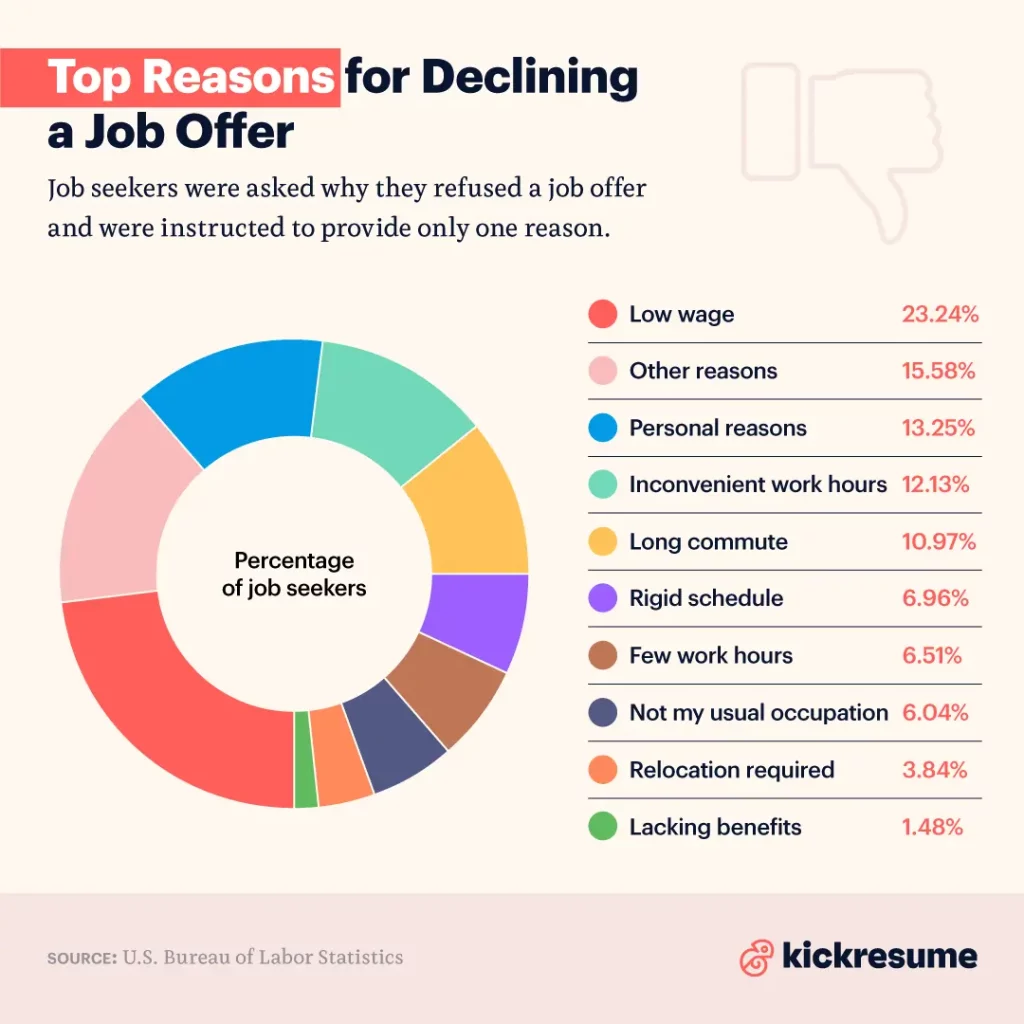Top Reasons for Declining a Job Offer
Jobs are all about the money, right? Well, not exactly.
Despite the fact that 23.24 percent of job applicants decline a job offer due to low wages, it still makes less than a quarter of job seekers. And the rest of them?
The remaining 76 percent of applicants turn down a job offer for reasons that go beyond the offered salary.
Personal reasons or inflexible schedules can make or break a job offer
The study shows that about 13 percent of candidates turn down a job offer because of personal reasons. Factors such as poor health or difficulty finding child care arrangements contribute to this number to a large degree.
What’s more, it looks like people value their personal needs more than ever. And well above a quarter of applicants say “no” to their prospective employer due to an inconvenient work schedule or commuting obstacles.
And these are the particular reasons: inconvenient working hours (12.13 percent), long commute (10.97 percent), and an inflexible schedule (6.96 percent).
A fair number of job seekers(6.04 percent) also turn down a job offer when they feel the job is simply not a good fit for their skillset and is not in their usual occupation.
Have job seekers become pickier?
They certainly have. And the reason is simply because they can.
With plenty of job opportunities available in the market, applicants are no longer reliant on the first decent job offer. As a result, one out of every six employment offers in the U.S. is turned down.
However, not all industries have equally picky applicants. More than 19 percent of job candidates in IT and business services pass on job offers. This is a relatively high figure when compared to 14.8 percent of declined job offers in other sectors.
The findings also suggest that a more challenging interview increases the probability of accepting the job offer by 2.6 percent. In other words, a rigorous interview can be seen as a sign of growth potential by career-driven job seekers.
What we may not realize is that every job rejection can turn into an instant burden for employers. These have to then invest more time and effort to search for other eligible candidates. And let’s be honest, all of this can add up in cost.
Luckily, grasping why candidates reject job offers can help companies make their hiring plans stronger and attract more skilled workers that won’t be gone in a month.



